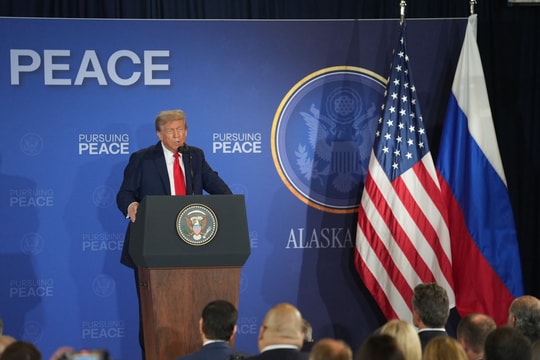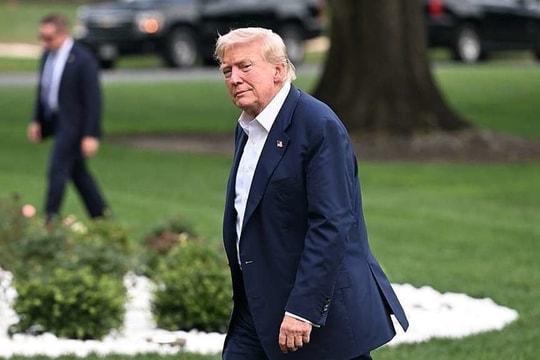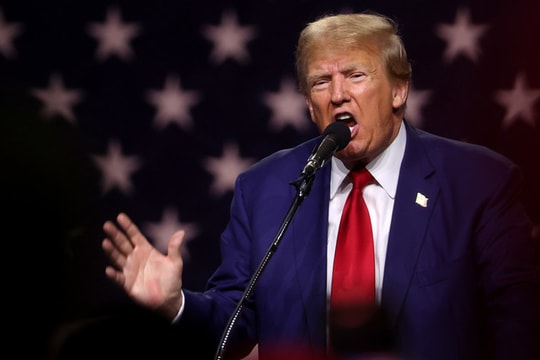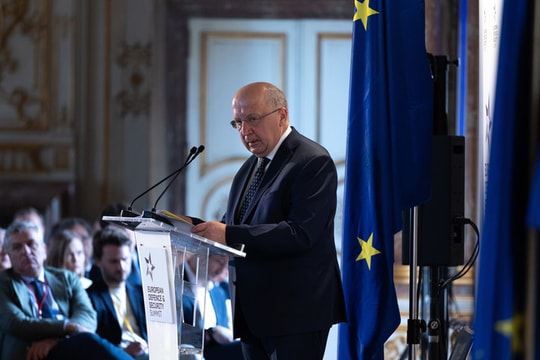US-Israel Relations: 'Wherever You Stumble, Start There'
(Baonghean) - After Japanese Prime Minister Shinzo Abe and Canadian Prime Minister Justin Trudeau, the next person who wants to "verify" changes in US foreign policy under President Donald Trump is Israeli Prime Minister Benjamin Netanyahu.
» Priest Nguyen Dinh Thuc incites parishioners
The meeting between Mr. Trump and Mr. Netanyahu on February 15 is seen as an opportunity to prove Mr. Trump's campaign statements about strengthening relations with ally Israel.
A trip full of expectations
Prime Minister Benjamin Netanyahu set off for the US with a series of core Israeli issues such as Iran's nuclear program, the war in Syria, the Middle East peace process, Israel's reconciliation with Arab countries in the region...
Netanyahu’s key task will be to win the support of the new US administration on these issues – something Israel lost under former President Barack Obama. Netanyahu himself was full of confidence before leaving, saying that “the alliance between Israel and the US has always been very strong and will only get stronger.”
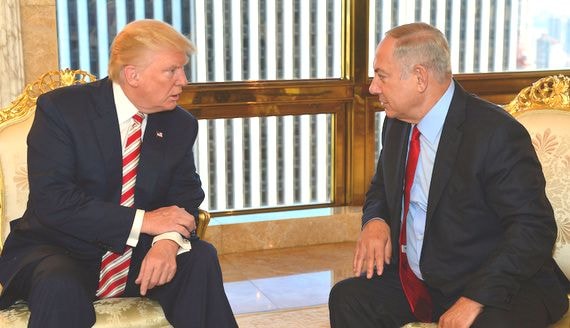 |
| Trump and Netanyahu met last September. Photo: Al Monitor |
Netanyahu has reason to be confident. Before his inauguration and when he officially entered the White House, Donald Trump has repeatedly affirmed his full support for Israel. While the Obama administration previously considered the existence of an independent Palestinian state alongside Israel as the “key” to ensuring peace in the Middle East and always sought ways to promote a “two-state” agreement, Trump has taken completely different steps.
Mr. Trump’s statements did not maintain a neutral tone but leaned towards Israel: “We cannot continue to let Israel be treated with contempt and disrespect… Let’s stand together with Israel, January 20 is fast approaching.” Mr. Donald Trump also calculated to move the US Embassy from Tel Aviv to Jerusalem - the place that Mr. Trump’s team implied would be recognized as the capital of this country.
Donald Trump's intention to choose David Friednam - who has publicly opposed the two-state solution of Israel and Palestine living together peacefully - as Ambassador to Israel is also seen as an indirect way to express support for Israel's stance on the Middle East issue.
Although the plan to move the US Embassy to Jerusalem has been suspended and Donald Trump recently criticized for the first time the expansion of settlements in the occupied Palestinian territories as "not helpful for regional peace", analysts say these are just minor adjustments by the Donald Trump administration to suit the regional geopolitical situation as well as the domestic situation.
In the context that the new administration of Donald Trump has been facing many difficulties since he officially took office, with the biggest blow being the departure of US National Security Advisor Michael Flynn, Donald Trump certainly does not want to receive further criticism from the international community if he does not "show his attitude" towards Israel's actions.
But these adjustments do not change the desire to “reset” relations between the US and Israel, and Donald Trump will have many ways to express that beyond the issue of peace between Israel and Palestine.
“Where you stumble, start from there”
The issue that Donald Trump and Benjamin Netanyahu are said to have the easiest time reaching an agreement on and also the one that shows the best US goodwill towards Israel is Iran. Iran is considered the core point that caused the relationship between the US and Israel to deteriorate rapidly under former President Barack Obama.
Until now, Mr. Netanyahu has not accepted that the US ignored Israel's wishes to sign the nuclear agreement with Iran with the Western countries last July. The Israeli side believes that, with the aim of "beautiful records" in his final term, Mr. Obama gave up many of his demands and left the door wide open for Iran, even Iran can make an atomic bomb in the future.
Netanyahu's views are shared by President Donald Trump, who has repeatedly said that the nuclear deal between Iran and the P5+1 group is "the worst in history" and that he will take steps to "correct the mistakes of the Obama administration" - a reference to the cancellation of this document.
The consensus on the Iranian nuclear issue was expressed by the two leaders in a phone call last January. Israeli Prime Minister Benjamin Netanyahu could not hide his satisfaction when he affirmed that Israel supported new economic sanctions against Iran…
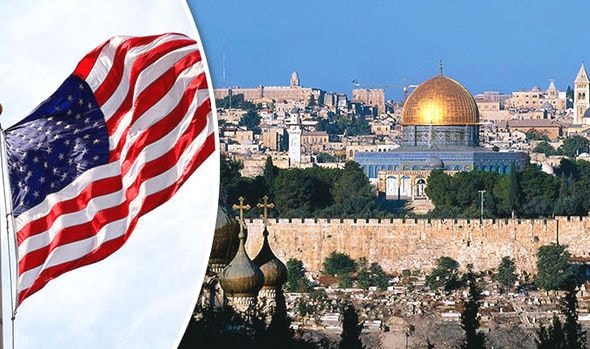 |
| The US is suspending plans to move its embassy in Israel to Jerusalem. Photo: Express |
On the US side, the commitments have also been realized with a number of new sanctions against Iran after the country conducted a recent missile test. Mr. Donald Trump has not hidden his intention to seek stronger sanctions from the US Congress against Iran.
Both Mr. Trump and Mr. Netanyahu appear to be very much aligned in their goals of condemning Iran’s violations of the international agreement and preventing Iran from developing missiles capable of carrying nuclear warheads. Mr. Trump’s deployment of additional naval forces to the Persian Gulf is also an implicit understanding that sanctions against Iran will be reinforced by military means.
Certainly, Israel - a country that has always been concerned about the rise of Iran in the Middle East - is extremely pleased with these steps by the Donald Trump administration.
Analysts believe that Iran will be the key to bringing the two allies, the US and Israel, back together after 8 years of “bad relations”. After all, the US and Israel have a deep relationship on a range of issues, sharing many common values and interests with many cooperative activities at the individual, local, federal and national levels.
The bond between the two countries is strong enough to weather storms, and the pivotal moment marking a new page in US-Israel relations was the meeting between President Donald Trump and Prime Minister Benjamin Netanyahu.
Thuy Ngoc
» Priest Nguyen Dinh Thuc incites parishioners



